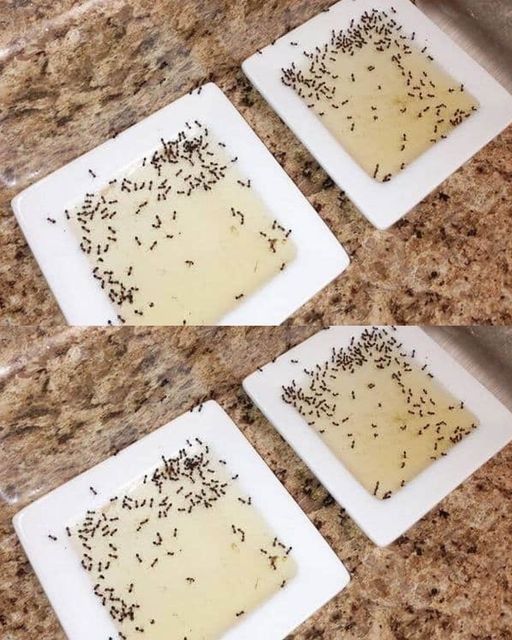ADVERTISEMENT
#### 4. **Use Ant Baits**
If you have a more serious ant infestation, ant baits can be a highly effective way to get rid of the problem. Ant baits attract ants, which then carry the poison back to the colony, killing the queen and other ants. This method can help eliminate the source of the problem rather than just treating the visible ants.
– **Place Baits in Strategic Locations:** Place ant baits along ant trails and in areas where you’ve seen heavy ant activity. The ants will carry the bait back to their colony, where it will eventually kill the entire colony.
– **Be Patient:** It may take some time for the bait to work, as it needs to be carried back to the colony and consumed by the ants. However, it is a long-term solution that can effectively eliminate the problem.
There are many commercial ant baits available, and most of them use slow-acting poisons that give ants time to bring the bait back to the colony.
#### 5. **Diatomaceous Earth**
Diatomaceous earth (DE) is a natural substance that can be used to control ants. DE is made from the fossilized remains of tiny organisms called diatoms, and it works by dehydrating ants and other pests. When ants come into contact with diatomaceous earth, the tiny particles scratch and damage their exoskeletons, causing them to lose moisture and die.
– **Use Food-Grade Diatomaceous Earth:** Make sure to use food-grade diatomaceous earth, as it is safe for humans and pets. Avoid the industrial-grade variety, which can be harmful if inhaled.
– **Apply Along Ant Trails:** Sprinkle a thin layer of diatomaceous earth along ant trails, entry points, and areas where ants are active. Be sure to reapply after cleaning or if it gets wet.
Diatomaceous earth is a non-toxic and effective way to deal with ants and other household pests.
#### 6. **Maintain a Dry Environment**
Ants are also attracted to moisture, so maintaining a dry environment in your home can help discourage them from entering. Here are some tips for keeping your home dry and less inviting to ants:
– **Fix Leaks:** Check for leaky pipes, faucets, or roofs and repair them promptly. Standing water can attract ants and other pests.
– **Use a Dehumidifier:** If you live in a humid climate or your home tends to be damp, consider using a dehumidifier to reduce moisture in the air. This will make your home less hospitable to ants and other moisture-loving pests.
– **Dry Damp Areas Immediately:** If you notice dampness on the floor or surfaces, wipe it up immediately. Ants are more likely to invade areas with moisture.
By keeping your home dry and free from standing water, you make it less attractive to ants looking for water sources.
#### 7. **Create Barriers with Ant Repellents**
There are many commercial ant repellents available that can help create barriers around your home to prevent ants from entering. These repellents typically contain strong-smelling ingredients like citronella, clove oil, or eucalyptus oil, which ants find unpleasant. You can use these products around entry points to keep ants from crossing into your home.
– **Spray Around Entry Points:** Spray ant repellent around doorways, windows, and other potential entry points. This will create a barrier that ants are reluctant to cross.
– **Use Ant-Repellent Plants:** Certain plants, such as mint, bay leaves, and garlic, are natural repellents for ants. Planting these around your home or placing them near windows and doors can act as a deterrent.
#### 8. **Call a Professional Exterminator**
If you have tried all of the above methods and still have an ongoing ant infestation, it may be time to call a professional exterminator. Pest control experts have the tools and knowledge to handle larger infestations and can provide long-term solutions.
Professional exterminators can identify the species of ants in your home and use targeted treatments to eliminate them. They may also offer advice on how to prevent future infestations and can help you address any underlying issues, such as moisture problems or structural vulnerabilities.
—
### **Conclusion**
Dealing with ants in your home can be a frustrating experience, but with the right strategies, you can discourage them from invading your space. By keeping your home clean, sealing entry points, and using natural deterrents or ant baits, you can significantly reduce the chances of ants becoming a problem. Additionally, maintaining a dry environment and using commercial repellents can further help to keep ants at bay. If all else fails, don’t hesitate to call a professional exterminator to handle the issue for you.
With these eight effective methods, you can protect your home from ants and create a more comfortable and pest-free living environment for you and your family.
